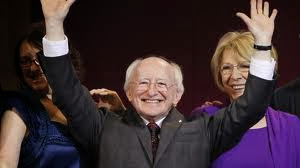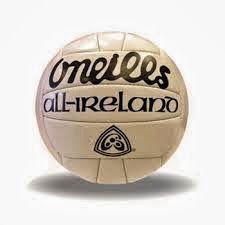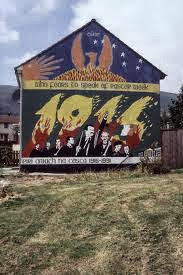I heard two interestingly different views on the Haas talks yesterday. One came from the leader of the DUP, Peter Robinson, who said he didn’t expect all matters regarding the past, regarding flags, regarding marching to be resolved by the Haas talks. The other came from the woman who removed Mr Robinson from his Westminster seat, Naomi Long of the Alliance Party. She said that to go into the talks saying they wouldn’t achieve their goals was defeatist, and that her party was going in to do everything possible to resolve the three matters in full.
Which was right? Being the canny and cynical people we are, most of us will agree with Robinson, although some of us mightn’t say it out loud. Resolve three hundred years of history inside three months? Not likely. On the other hand, has there ever been a football manager or a team captain who has told his troops at the outset “We’re going to be defeated, lads, but let’s put up a decent show”? As they sang in that old musical South Pacific, “If you don’t have a dream/If you don’t have a dream/How you gonna make a dream come true?”
One of the charges against David Trimble - in fact probably the most damning charge during his tenure as top man in unionism - was that he dragged his feet. Yes, he’d signed up to the Good Friday Agreement but that didn’t mean anything had really changed, he’d work things so the interests of unionism were always served, he’d have a weather-eye open for any chicanery by those pesky republicans, and just because you had to work with someone didn’t mean you had to do other than detest them. For that - no, don't laugh - he got the Nobel Prize for Peace.
Something of the same could be said of Peter Robinson at present. He’s often hailed as the pragmatist, the great adherent of brass tacks. His recent actions suggest he’s nothing of the sort. Everyone, including the unionist community, knows that Peter printed those 40,000 leaflets for East Belfast distribution, condemning the ‘tearing down’ of the union flag and calling for protest on the streets. They also know that he did so not with an eye to proper respect for the union flag but to knocking hell out of the Alliance Party and in particular Naomi Long. When he pulled out of the agreement to have a peace centre at the Long Kesh/Maze site, he did so on the excuse that there had been a legal Republican march in Castlederg, commemorating republicans who had died in the conflict. It doesn’t take an Einstein to figure that Peter was feeling the pressure of the backwoodsmen and was terrified that he’d be seen as someone who didn’t care about working-class unionists, or at least the votes of working-class unionists.
All this, after his famed outreach to Catholics, with his talk of shared education and a shared future and ending that nasty old sectarianism stuff, especially now that the Catholic population looked like becoming a majority in the state. OK, he didn’t say that last bit, but you may be sure that was one of the things that weighed with him. If a pragmatist is someone who’ll do damn near anything he believes will shore up the party vote, Peter is a pragmatist.
So where are we now? Grappling with the three-headed monster under the chairmanship of Richard Haas. Is three months too short a time? Probably, knowing some of our politicians. But here are my suggestions.
Parades: stop them. All of them. Commemorate to your heart's content, celebrate to your heart's content, but do it on the spot, not while marching.
Flags: stop flying them. It’s not as if they were the public transport system or the clean water supply. We can live without them. Improve the environment: ban flags.
The past: if that means everyone coming clean about what happened during the recent conflict, OK, let’s have everyone, including the British government, put their cards on the table. No hiding behind national security claims or anything else. If that can’t be agreed to, then do what every other generation has done after a time of conflict: let it be. We can’t ‘deal with’ the past, any more than we can change it. I know it’ll be hard for some people, particularly victims, but my Plan B is: let it go.
OK, Dr Haas. You tie up the loose ends.

























